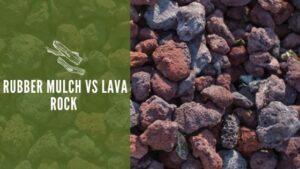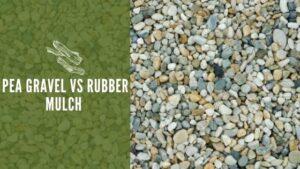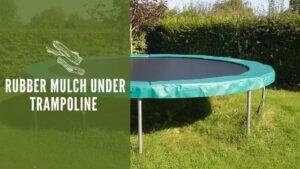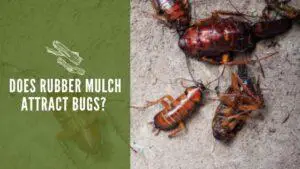Rubber Mulch Alternatives
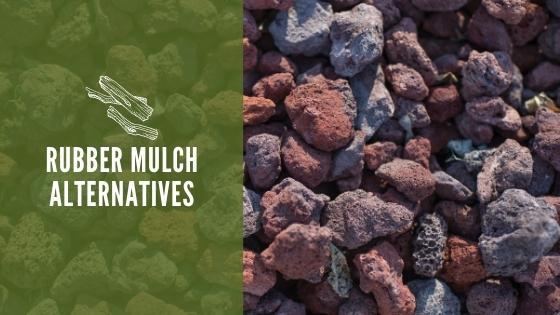
For quite a few years, rubber mulch has been promoted as an environmentally friendly alternative to other mulches for anything from playgrounds to landscapes. Many people choose rubber mulch because they feel they are doing something good for the environment by keeping tires out of the landfill, and it is a long-lasting solution that does not need to be renewed.
Despite its advantages, there are many other considerations and concerns with rubber mulch, and it might not be as environmentally friendly as claims suggest.
What’s Bad About Rubber Mulch
One of the reasons why people choose rubber mulch is because manufacturers claim that it lasts “forever.” Unlike wood and other organic mulch, it does not break down and needs to be replaced every couple of years. It is being promoted as an inexpensive, long-lasting solution to landscape design, but it has a dark side.
According to the EPA, The United States throws away approximately 290 million tires each year. Rubber mulch was invented to help cut down on the problem and find a new use for discarded tires. While this approach does keep rubber tires out of the landfill, it raises other concerns about the environmental impact of rubber mulch.
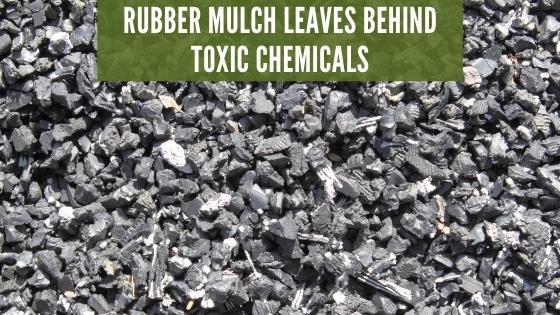
What attracted people to rubber mulch is that it had an appearance of natural shredded wood from a distance, and it did not require cutting down hardwood forests. However, it was not long until this alternative caused a few problems. One of them is that rubber mulch gives off an odor that is similar to that of hot tires under extreme heat.
The truth is that rubber mulch does not last “forever,” and it begins its life as organic material. While it breaks down more slowly than other more organic mulches, it does deteriorate over time, and what it leaves behind is a trail of toxic chemicals, paint, and other substances that can harm the environment. These substances include having metals, plastic, and other toxic chemicals.
These chemicals can be harmful to plants and wildlife in the area. They can also leach into our water system.
What Else Can I Use Instead of Rubber Mulch?
As you can see, rubber mulch might not be your best alternative for beautifying your landscape. Here are a few rubber mulch alternatives that you might want to consider.
Wood Mulch
Wood mulch is the most common mulch that you will find, and it is readily available. It is also the least expensive. Wood mulch breaks down over time, and you will need to refresh it about once a season. Also, it might need to be completely replaced every two to three years. As it breaks down, it adds nutrients to the soil, which can help plant growth. It does retain moisture, which can create mold or fungus problems, but this is typically not an issue if you do not spread it too thick and use it in a sunny area.
Pea Gravel
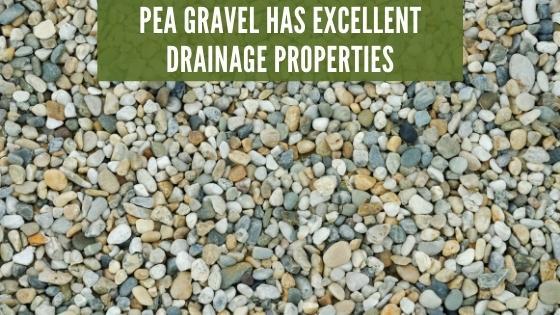
Pea gravel is another popular alternative to rubber mulch. It is plentiful and is collected as part of other gravel production operations. It is simply stones that have been sifted to be of uniform size and shape. Pea gravel has excellent drainage properties, but it does break down over time in areas that receive high traffic. You may need to top it up every four or five years. It is less expensive than rubber mulch in many cases.
Lava Rock
Lava rock is another alternative to rubber mulch. It is often more expensive initially because it can only be found in volcanic fields. It is considered environmentally friendly, and it does not break down as often as wood or pea gravel.
It is considered a more permanent solution, even more so than rubber mulch. It also gives the landscape a beautiful, natural look. Lava rock provides excellent drainage and weed suppression properties, too.
If you are trying to maintain the beauty of your property using the most environmentally friendly alternative, rubber mulch might not be your best choice. Even though it is promoted as environmentally friendly, the truth is that it can be one of the worst in terms of releasing toxins into the environment.
Before making your decision, it is good to explore all your options and decide which one is right for you. If you are looking for a long-lasting, more permanent solution, natural stone is an excellent alternative.

